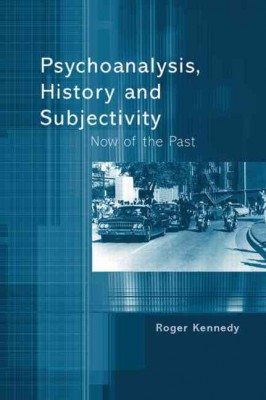| Psychoanalysis, History and Subjectivity: Now of the Past Contributor(s): Kennedy, Roger (Author) |
|
 |
ISBN: 1583912606 ISBN-13: 9781583912607 Publisher: Routledge OUR PRICE: $161.50 Product Type: Hardcover - Other Formats Published: June 2002 Annotation: Clinical psychoanalysis since Freud has put reconstruction of the patient's history at the forefront of its task but in recent years, this approach has not been so prominent. This book aims to explore and re-evaluate the relationship between history and psychoanalysis. Roger Kennedy develops new perspectives on historiography by applying psychoanalytic insight into the key issues of narrative, time and subjectivity in the construction of historical accounts. He also throws new light on the importance of history for and within psychoanalytic treatment. It is argued that human subjectivity is a major element in any historical enterprise, both the subjectivity of the historian and that of those being studied. Illustrated with clinical examples," Now of the Past" covers areas such as postmodernism, the nature of memory, clinical evidence and the place of trauma. "Now of the Past" will be of great interest both to professionals in the psychoanalytic and therapeutic fields and to historians |
| Additional Information |
| BISAC Categories: - Psychology | History - Psychology | Movements - Psychoanalysis - Psychology | Mental Health |
| Dewey: 150.195 |
| LCCN: 2002025430 |
| Physical Information: 0.8" H x 6.28" W x 9.56" (0.95 lbs) 196 pages |
| Descriptions, Reviews, Etc. |
| Publisher Description: Clinical psychoanalysis since Freud has put reconstruction of the patient's history at the forefront of its task but in recent years, this approach has not been so prominent. This book aims to explore and re-evaluate the relationship between history and psychoanalysis. |